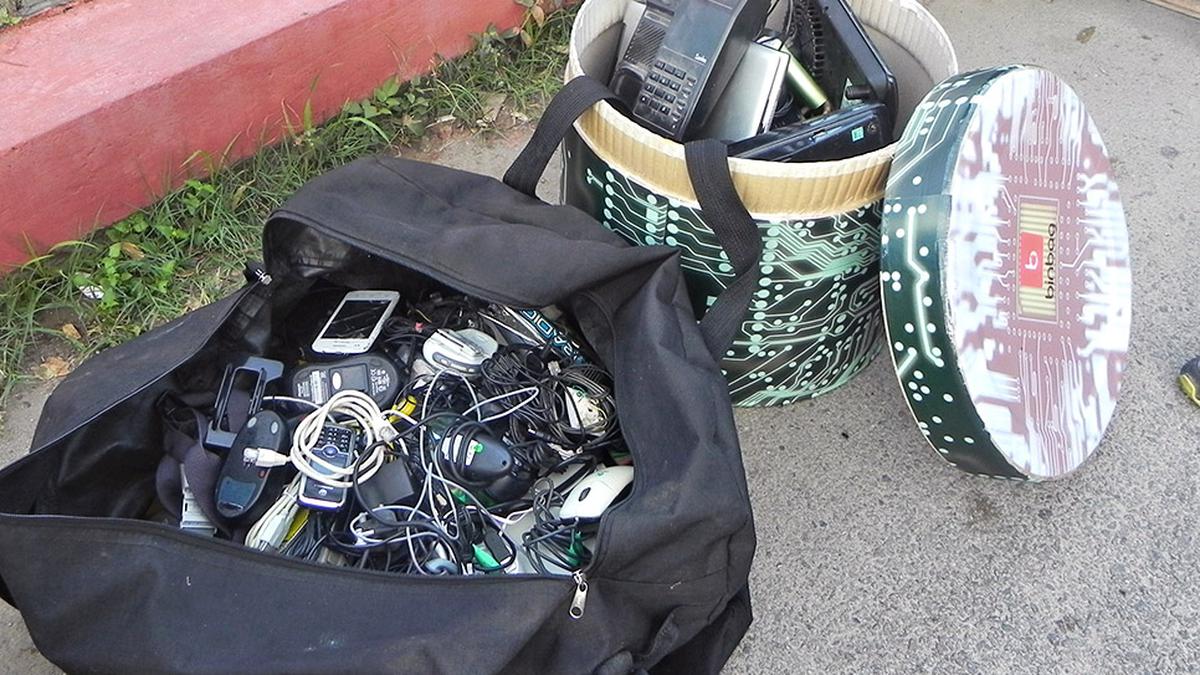
Karnataka mulling over new law to handle rising quantum of e-waste
The Hindu
Recycling units registered with Karnataka State Pollution Control Board (KSPCB) had shown an increase in the quantum of e-waste collected from 44,240 tonnes during 2019-20 to 96,175 tonnes during 2020-21
Minister for Tourism, Environment and Ecology Anand Singh assured the Legislative Council that the State Government will consider bringing in a new law to handle the growing quantum of e-waste in Karnataka.
Responding to questions from K.A. Thippeswamy and D.S. Arun, Mr. Singh said the processing and recycling units registered with the Karnataka State Pollution Control Board (KSPCB) had shown an increase in the quantum of e-waste collected from 44,240 tonnes during 2019-20 to 96,175 tonnes during 2020-21.
However, he said the government does not have any data on the e-waste collected by the unorganised sector. The main reason for the government not having the full data on the e-waste generated in Karnataka is because the unorganised units are not covered by E-Waste Management Rules 2016.
A total of 180 units had registered with the KSPCB for processing and recycling e-waste out of which 93 were functioning and 47 others were yet to start functioning. Another 40 units had closed.
Mr. Arun pointed out that Bengaluru is the third-highest e-waste generating city in India, and urged the government to take necessary steps and consider a Public Private Partnership (PPP) model for handling the large volume of e-waste.
Even if televisions, refrigerators and mobile phones are part of buy-back schemes offered by manufacturing companies, Mr. Arun sought to draw the government’s attention to the unsafe disposal of tubelights and Compact Fluorescent Lamps (CFL) that contain hazardous chemicals and gases, arsenic and ammonia.
He pointed out to the hazardous disposal of batteries in large volumes, which is only set to further increase with the advent of e-vehicles that require periodic replacement of batteries.













